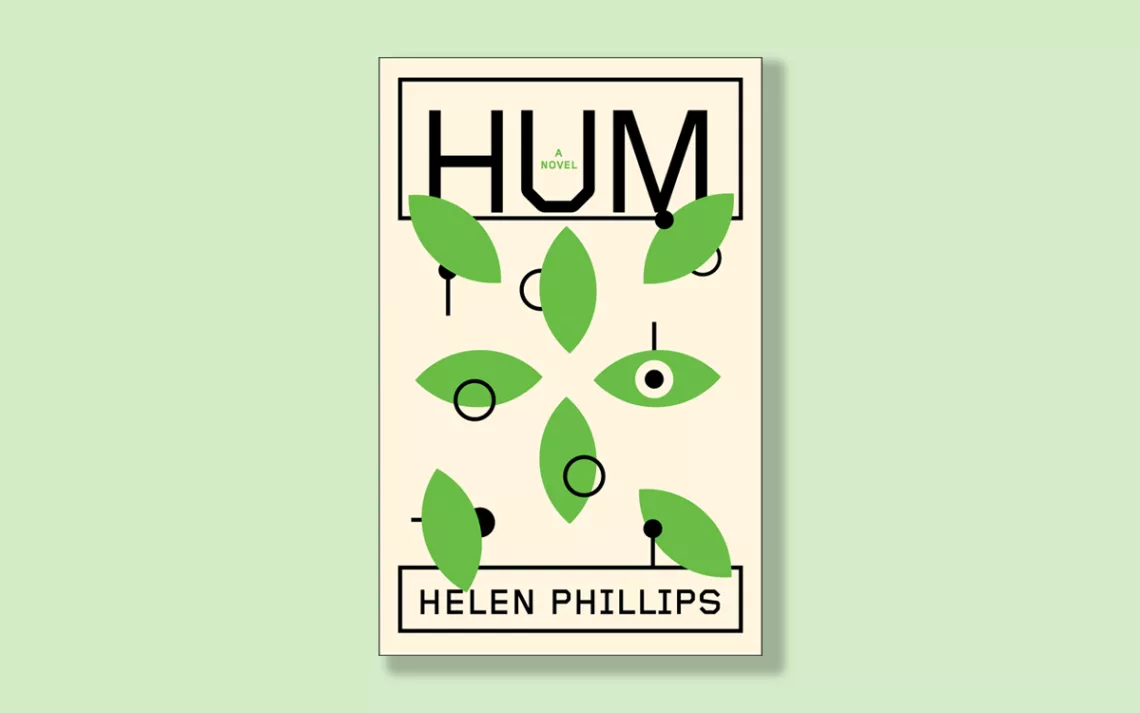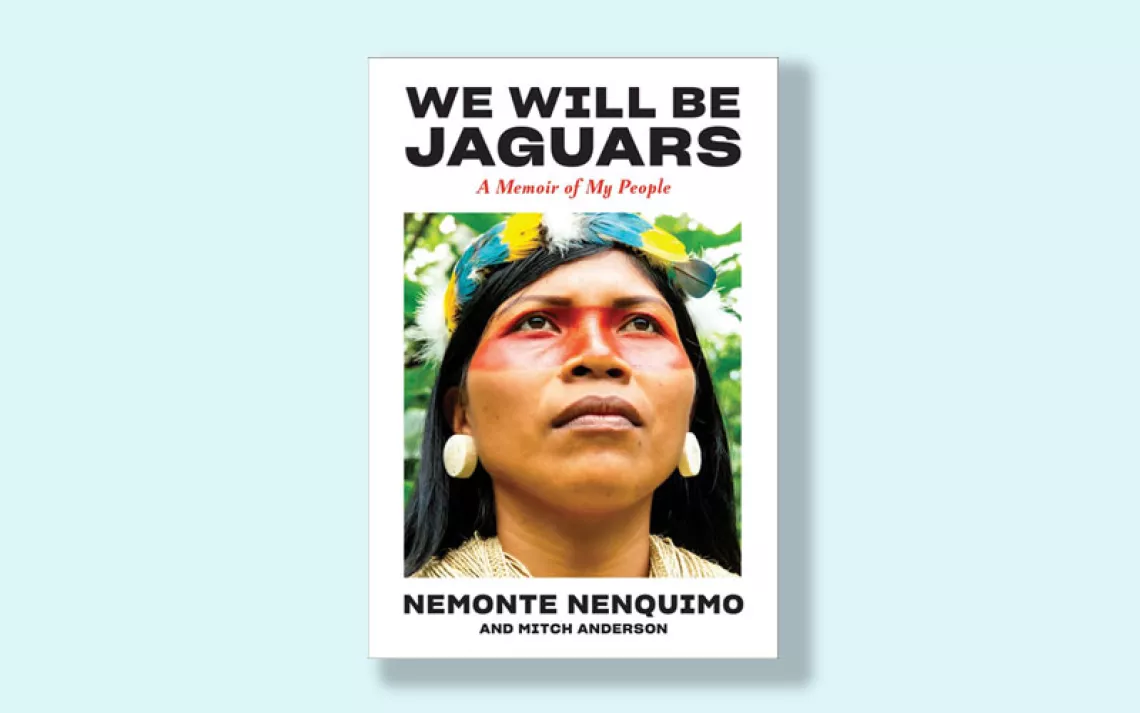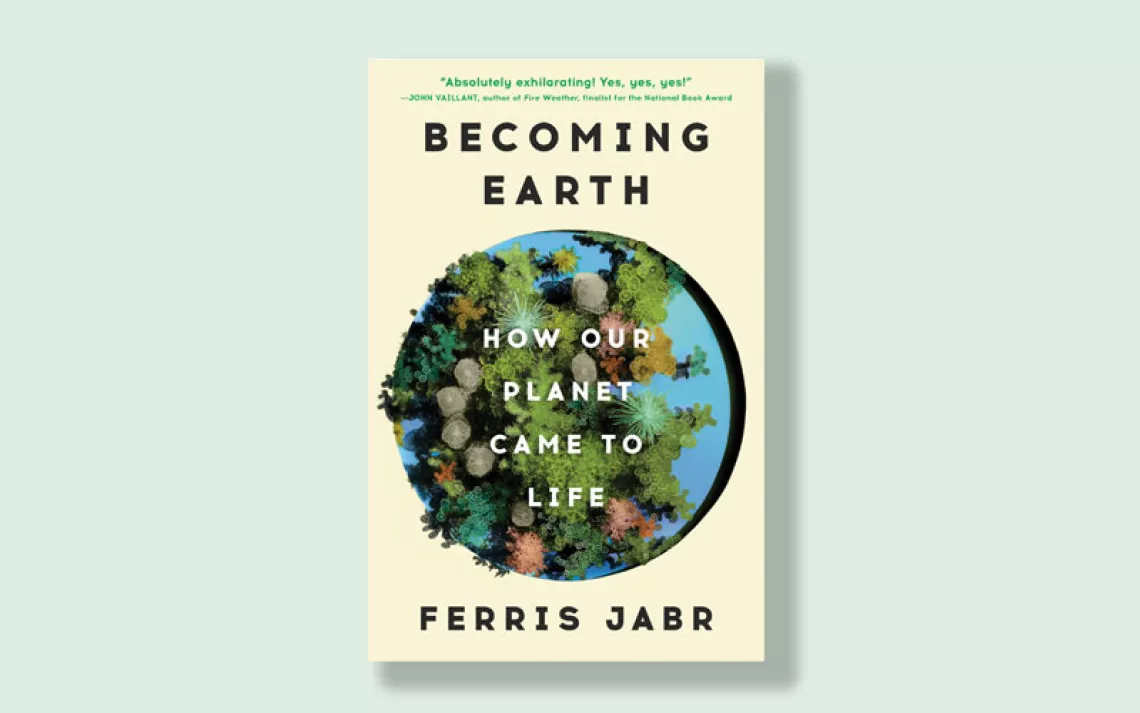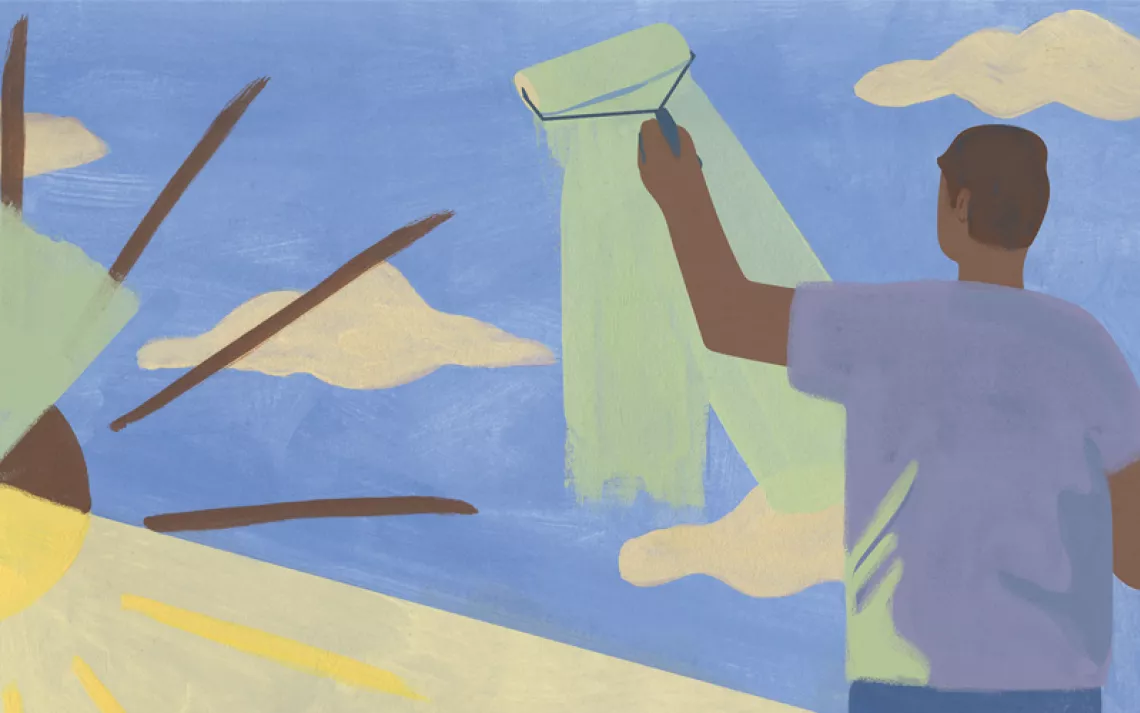Facing Motherhood in an Unrecognizable World
Helen Phillips's "Hum" tracks motherhood in an increasingly unrecognizable world

May, a mother of two, has just lost her job to artificial intelligence. Robots called “hums” have rendered human labor obsolete. The forests May once knew are all “gone, burned.” Oceans are awash in oil, too toxic to swim in. May’s children read disaster-preparedness manuals at bedtime and check the air quality before going to school. The lines between the human and digital world are blurred, and depression is rampant. “She had heard of elderly people who, at the end, chose hum company over human company,” Helen Phillips writes.
Phillips’s most recent book, Hum: A Novel (Simon & Schuster/Marysue Rucci Books, 2024), tells a story resonant with our contemporary moment: one woman’s journey navigating motherhood amid a rapidly changing world, overwhelmed with climate catastrophe and AI advances. Seeking refuge from the challenges of her daily life, May takes her family on a trip to one of the few remaining nature reserves and insists that they leave their devices behind. What unfolds is highly unexpected—a look at what happens when motherly instincts, so primal, erratic, and distinctly human, come into conflict with technological progress. Is progress inherently good? To what extent do our devices control us? What freedoms and joys might we lose to automation—and what can never be replaced?
Hum is an urgent, hauntingly beautiful work of speculative fiction that takes stock of our present moment. In our fast-paced, ever-evolving world, Phillips asks us all to take a second and consider what really matters—and what we truly can’t live without.
 The Magazine of The Sierra Club
The Magazine of The Sierra Club



